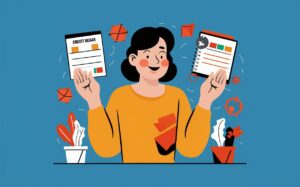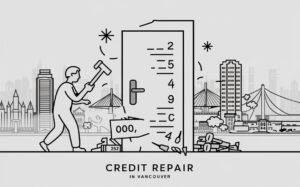
Is Credit Repair Legal in Canada? Know Your Rights
Welcome to our article on the legality of credit repair in Canada. Thinking about using a credit repair service? It’s key to know what’s legal
In Debt Management in Canada 2023, we aim to provide you with an in-depth understanding of effective strategies to manage and alleviate your financial burdens. Canada, being a diverse and economically robust nation, offers various avenues for individuals grappling with debt to regain financial control. Let’s delve into the intricacies of debt management and explore practical solutions tailored to the Canadian context.
To navigate the debt management terrain effectively, it’s crucial to comprehend the current debt landscape in Canada. According to recent statistics from reputable sources such as Statistics Canada and the Canadian Bankers Association, the average Canadian household debt stands at $71,979. Understanding these numbers is the first step towards crafting a personalized debt management plan.
One of the fundamental pillars of debt management is establishing a well-thought-out budget. Begin by categorizing your monthly expenses, differentiating between essential and discretionary spending. Tools like budgeting apps can assist in this process, providing real-time insights into your financial habits.
Consolidating multiple debts into a single, manageable loan can be a game-changer. Seek out reputable financial institutions in Canada that offer debt consolidation services with favorable interest rates. This approach simplifies your financial obligations, making it easier to keep track of payments.
In Canada, numerous credit counseling agencies specialize in assisting individuals facing financial challenges. These agencies provide expert advice on budgeting, debt consolidation, and negotiation with creditors. Before choosing a credit counseling service, ensure they are accredited by reputable organizations like the Canadian Association of Credit Counselling Services.
In certain cases, a consumer proposal may be a viable option for debt resolution. This legal process allows you to negotiate with creditors to pay back a percentage of your debts over an extended period. Seeking legal advice and understanding the implications of a consumer proposal is essential for making informed decisions.
While it’s an option of last resort, declaring bankruptcy may be necessary for individuals in dire financial straits. Understanding the legal procedures and consequences associated with bankruptcy is crucial. Consult with a licensed insolvency trustee to explore alternatives and determine the most suitable course of action.
Canada offers a range of government resources to support individuals dealing with debt. Websites such as the Financial Consumer Agency of Canada (FCAC) provide comprehensive information on debt management, financial literacy, and consumer rights.
Non-profit organizations like Credit Canada are dedicated to providing free or low-cost debt counseling services. These organizations often collaborate with financial institutions to negotiate reduced interest rates and more favorable repayment terms on behalf of individuals seeking assistance.
In conclusion, effective debt management in Canada involves a multifaceted approach, encompassing budgeting, consolidation, legal considerations, and leveraging available resources. By implementing these strategies, individuals can take proactive steps towards financial recovery.
There are several reasons why individuals in Canada may choose debt consolidation. Some of the benefits include:
Lower interest rates: By consolidating debts, individuals can potentially qualify for a lower interest rate than what they were previously paying, resulting in lower monthly payments and less interest paid over time.
Simplify finances: Managing multiple debts can be stressful and overwhelming. By consolidating debts, individuals can simplify their finances and make a single monthly payment.
Get out of debt faster: Debt consolidation can help individuals get out of debt faster by reducing the amount of interest paid over time.
Improve credit score: Consistently making payments on a debt consolidation loan or program can improve an individual’s credit score over time.
There are two main types of debt consolidation in Canada: secured and unsecured.
Secured debt consolidation involves using an asset, such as a home or car, as collateral for a loan. The lender can seize the asset if the borrower is unable to repay the loan. Secured debt consolidation loans typically have lower interest rates than unsecured loans, but there is a higher risk for the borrower.
Unsecured debt consolidation does not require collateral and is based solely on the borrower’s creditworthiness. These loans typically have higher interest rates than secured loans, but there is less risk for the borrower.
There are several options available for debt consolidation in Canada. Some of the most common methods include:
A debt consolidation loan involves taking out a loan to pay off multiple debts, leaving only one monthly payment to make. The interest rate on the loan is typically lower than what the borrower was paying on their individual debts, resulting in savings over time.
A home equity line of credit (HELOC) allows homeowners to use the equity in their home to consolidate debts. The interest rate on a HELOC is typically lower than unsecured loans, but there is a risk of losing the home if the borrower is unable to make payments.
A balance transfer credit card allows individuals to transfer high-interest credit card debt to a card with a lower interest rate. Some balance transfer cards offer an introductory 0% interest rate for a certain period of time, allowing individuals to pay off their debt without accumulating more interest.
A debt consolidation program involves working with a credit counseling agency to create a debt management plan. The agency negotiates with creditors to lower interest rates and consolidate debts into a single monthly payment. Individuals in a debt consolidation program must make consistent payments on time to successfully pay off their debts.
Debt consolidation offers several advantages for individuals in Canada, including:
Lower interest rates: Consolidating debts can result in lower interest rates and lower monthly payments.
Simplified finances: Consolidating multiple debts into a single payment can simplify finances and reduce stress.
Debt payoff: Consolidating debts can help individuals pay off their debts faster and save money in interest charges.
Improved credit score: Making consistent payments on a debt consolidation loan or program can improve an individual’s credit score over time.
While debt consolidation offers several advantages, there are also some disadvantages to consider, such as:
Risk of losing collateral: If an individual chooses a secured debt consolidation loan, there is a risk of losing the asset used as collateral if they are unable to make payments.
Fees and charges: Some debt consolidation methods, such as balance transfer credit cards, may have fees and charges associated with them.
Extended repayment period: While lower interest rates can result in lower monthly payments, a longer repayment period may result in paying more in interest over time.

Welcome to our article on the legality of credit repair in Canada. Thinking about using a credit repair service? It’s key to know what’s legal

At FixMyCredit.ca, we’re your expert credit repair team in Canada. Are you facing a low credit score or negative items on your report? We’re here

Welcome to fixmycredit.ca, your go-to for fixing your credit in Vancouver. We know how important a good credit score is. It affects getting a mortgage,
